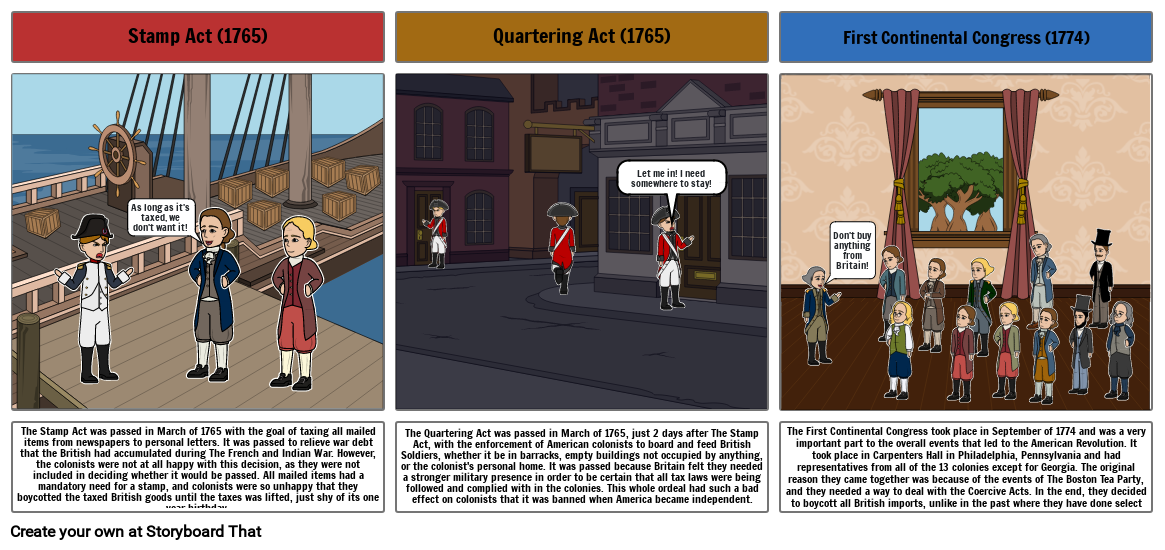3 Colonial Events Storyboard

Storyboard Text
- Stamp Act (1765)
- As long as it's taxed, we don't want it!
- Quartering Act (1765)
- Let me in! I need somewhere to stay!
- First Continental Congress (1774)
- Don't buy anything from Britain!
- The Stamp Act was passed in March of 1765 with the goal of taxing all mailed items from newspapers to personal letters. It was passed to relieve war debt that the British had accumulated during The French and Indian War. However, the colonists were not at all happy with this decision, as they were not included in deciding whether it would be passed. All mailed items had a mandatory need for a stamp, and colonists were so unhappy that they boycotted the taxed British goods until the taxes was lifted, just shy of its one year birthday.
- The Quartering Act was passed in March of 1765, just 2 days after The Stamp Act, with the enforcement of American colonists to board and feed British Soldiers, whether it be in barracks, empty buildings not occupied by anything, or the colonist's personal home. It was passed because Britain felt they needed a stronger military presence in order to be certain that all tax laws were being followed and complied with in the colonies. This whole ordeal had such a bad effect on colonists that it was banned when America became independent.
- The First Continental Congress took place in September of 1774 and was a very important part to the overall events that led to the American Revolution. It took place in Carpenters Hall in Philadelphia, Pennsylvania and had representatives from all of the 13 colonies except for Georgia. The original reason they came together was because of the events of The Boston Tea Party, and they needed a way to deal with the Coercive Acts. In the end, they decided to boycott all British imports, unlike in the past where they have done select goods.
Over 30 Million Storyboards Created

